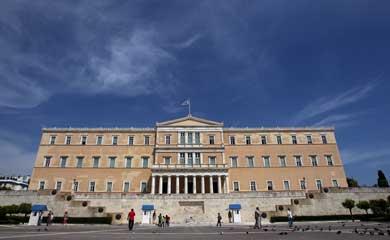Keeping Greece in the euro may have nothing to do with finances

By Maria Petrakis
A bronze statue of Harry S. Truman stands unguarded in the side of a busy Athens road, a reminder of Greece's post-World War II position as a strategic bulwark for the U.S. and Europe.
If euro-area policy makers overcome their frustration over Greek financial brinkmanship and cough up more aid, it will be in no small part because of that role.
"Greece's geopolitical potential has been used as a promise, but mostly as a threat," said Eirini Karamouzi, lecturer in contemporary history at Sheffield University and author of a book on Greece's relationship with Europe during the Cold War. "There's always been the threat of a catastrophic spillover effect if Greece was left to its own devices or, worse, turn into a failed state in Europe's backyard."
Greece's trump card historically has been its location at NATO's southeastern flank. As Islamic State gains to the south and east, Russia encroaches to the north and migrants flood to Europe, the question is whether Greece is worth more than the billions it needs to get out of its financial hole.
While Prime Minister Alexis Tsipras's government and its creditors squabble over percentage-point differences in budget requirements, leaders are talking security and politics.
'Tough decisions'
At the Group of Seven summit in Germany this week, U.S. President Barack Obama urged greater efforts to resolve the crisis. "If both sides are showing a sufficient flexibility, then I think we can get this problem resolved," he said. "But it will require some tough decisions for all involved, and we will continue to consult with all the parties involved to try to encourage that kind of outcome."
German Chancellor Angela Merkel,...
- Log in to post comments








